2025 Honduras trip
2025 UUCC Honduras Service Trip Report
by Allie Gassmann
The Honduras Ministry Team went on the sixth UUCC service trip from March 22 to March 29, 2025. There were 13 UUCC members and friends who went on the trip. Bertin “Cito” Lobo and his wife Keyla are our organizers on the ground and spent the whole time we were there together with us. Cito’s son Ritchy helped organize the latrine builders, and Cito’s nephew Adonis helped organize the people who painted the school. Cito and Keyla’s children Brittany, Breslyn, Ethan and their adopted daughter Briani were a joy to have with us as well! The group worked together with the villagers to at least get started on building 10 latrines in the upper hills area of El Pital and in Las Mangas. Cito, Keyla, Ritchy and Adonis continued working on the latrines to finish them up after we left.
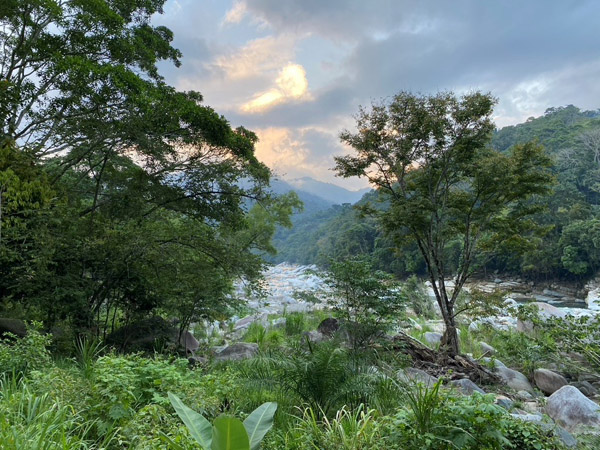
Why build latrines? Diarrheal diseases are one of the leading causes of death worldwide. According to the Institute for Health Metrics and Evaluation, 1.2 million people died from diarrheal diseases in 2021. Children are especially vulnerable, and about 340,000 of these deaths were in children under five years old. 88% of diarrhea-associated deaths are due to unsafe water, inadequate sanitation and insufficient hygiene. Latrines are key in preventing diarrheal diseases when indoor plumbing is not an option. This is why November 19th was declared World Toilet Day by the United Nations in 2013. Our next Trivia Night to raise funds for our Honduras work is on November 29, 2025 to coincide with World Toilet Day!
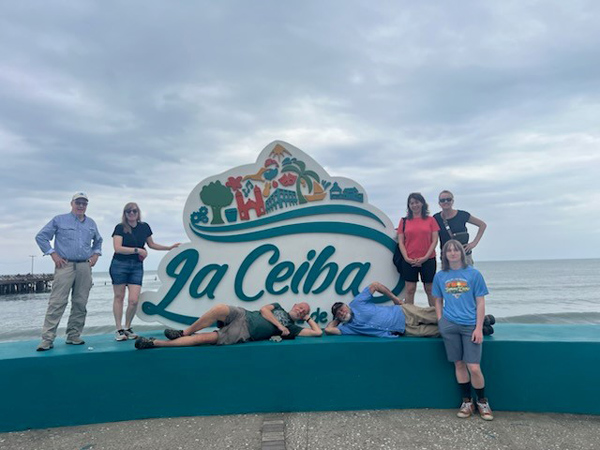
We left early in the morning from Kansas City on March 22, arrived in San Pedro Sula in the early afternoon and took the bus to La Ceiba. The trip from the airport to La Ceiba took two hours longer than usual due to the disrepair of the road and lots of traffic. But it was heartening to see lots of new houses and businesses along the road. We were told that remittances sent back from Hondurans living elsewhere and subsidies from the government have helped many people build houses and new businesses.
We spent the first night at the Gran Hotel Paris in La Ceiba, enjoying a nice meal and the pool. The next morning, we were off to the Cangrejal River Valley. This trip also took a lot longer than in the past. First, we had to take a detour on a makeshift dirt road since the bridge hasn’t been rebuilt yet since Hurricane Sara last November. The unpaved road through the valley is even more rutted and difficult to drive on since large parts of the road were washed away by Hurricane Sara, so the bus could only drive very slowly.
When we arrived at the cabañas in Las Mangas, everyone settled in, and we had a delicious lunch. Meals are so delicious at the cabañas! Then we were off to El Pital.
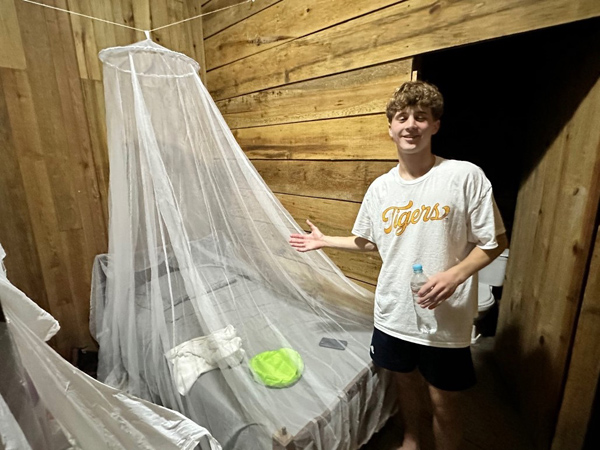
When we arrived in El Pital, we got right to work scraping paint from the school and getting things ready for painting the next day.
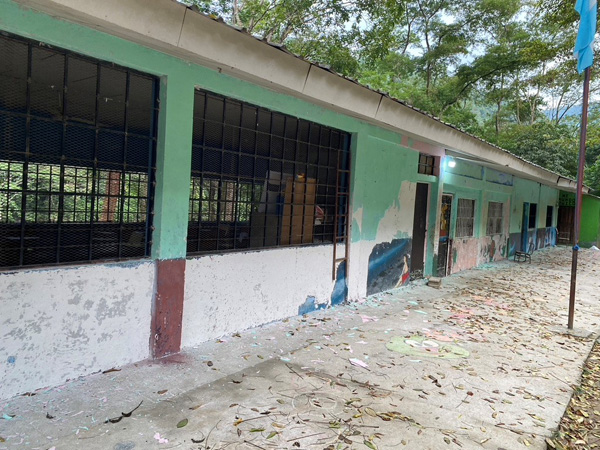
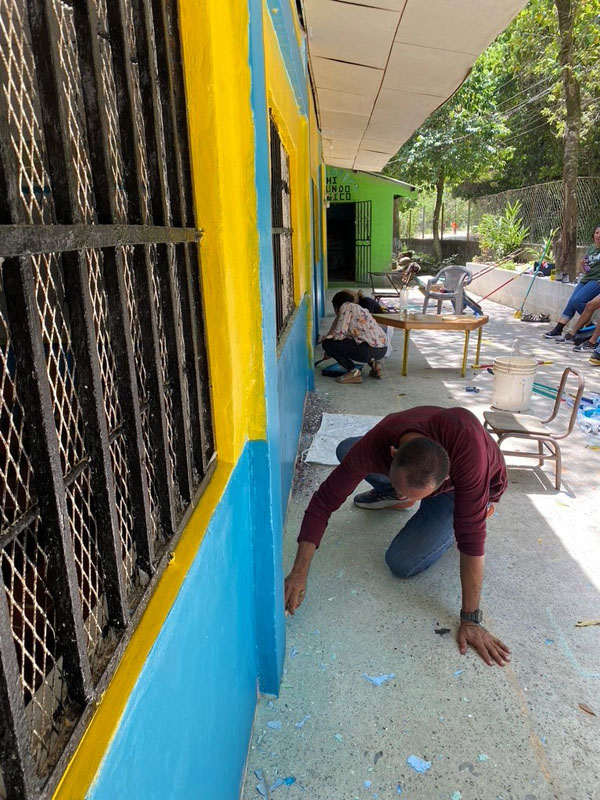
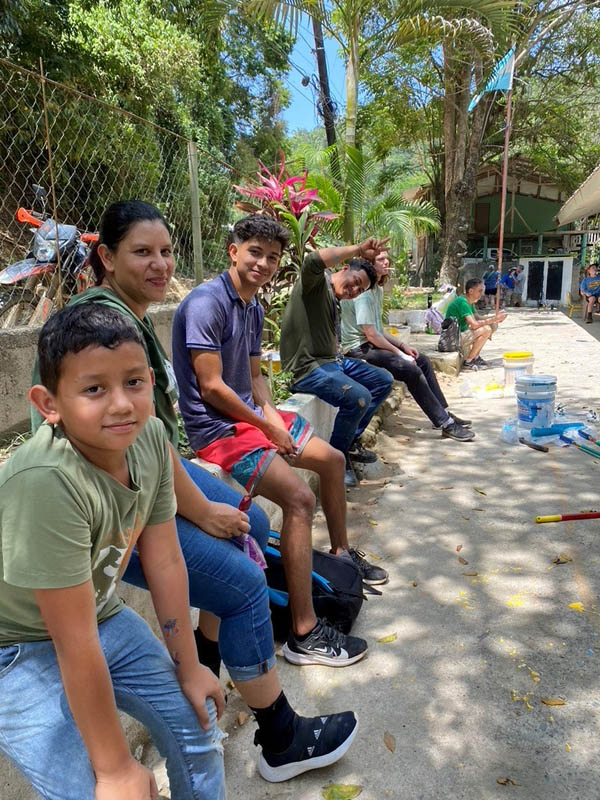
On Monday, half of us started working on three latrines in the hills above El Pital. The other half continued stripping paint and then painting the school. Kristine took over Cito’s school classes so that Cito could be free to lead our projects.
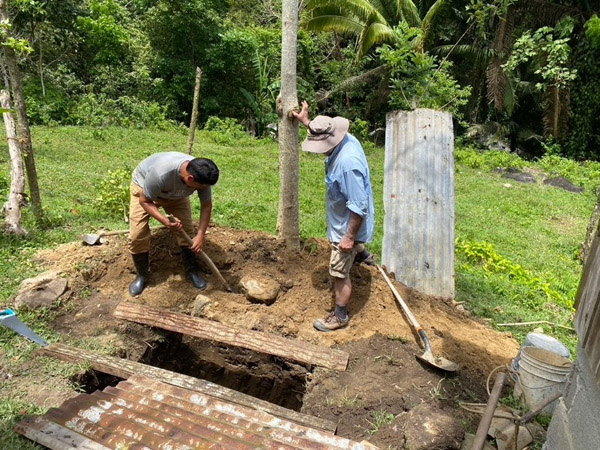
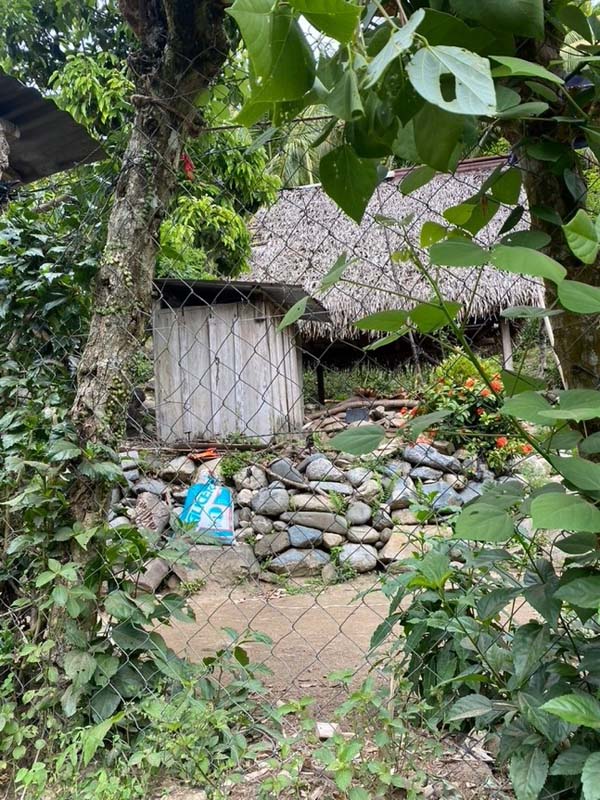
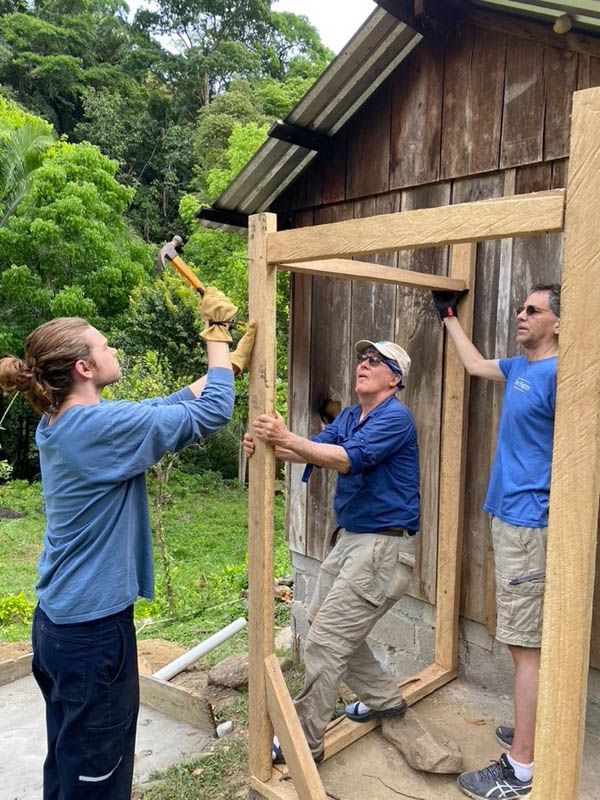
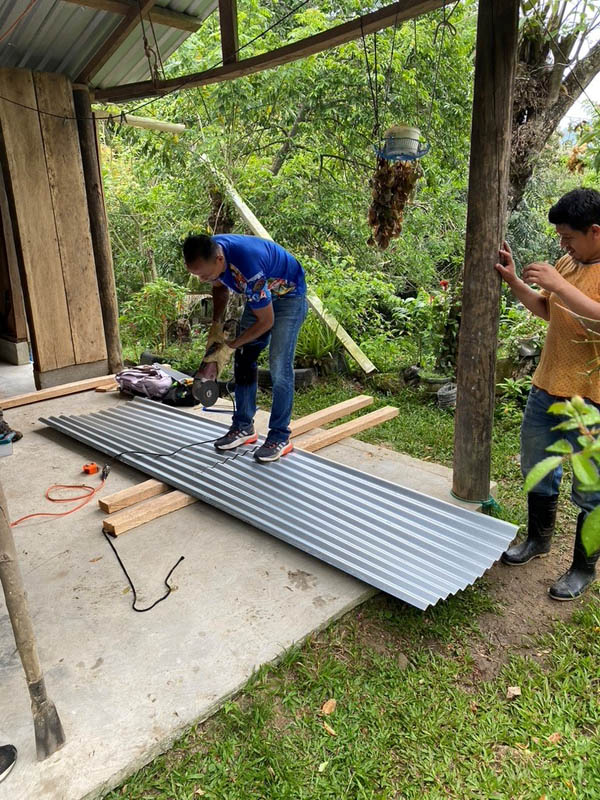
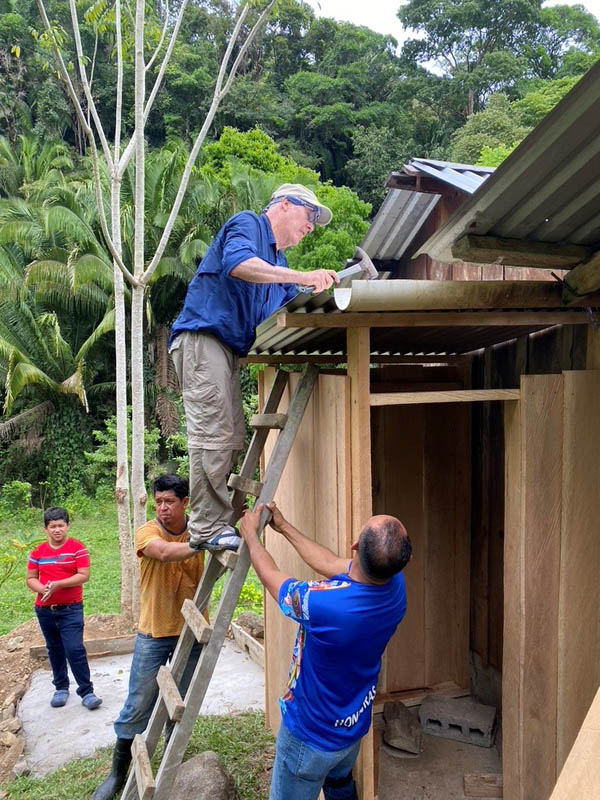
Monday afternoon we had lunch with Cito’s mother, Rosario. Rosario told us all about how she and her late husband came into the River Valley, how she founded the sewing cooperative and how it blossomed into not just a sewing cooperative but a community center and a lifeline for women in the River Valley.
Tuesday, we got to hear from Olvin, someone who works for and with USAID, who told us about the many important things USAID has funded in Honduras. Losing this funding has been a real shock, and Hondurans are looking to other countries to fill the void.
We took some time to swim in the Cangrejal River, enjoying the breathtaking scenery all around us.
We also heard a talk from Adolfo. Adolfo is from the Cangrejal River Valley and is currently getting a degree in forestry. He had many interesting facts to share about the environmental riches in the Pico Bonito and Nombre de Dios National Parks surrounding the Cangrejal River Valley.
Wednesday, after our latrine and painting work was done, we visited a local chocolate factory. We learned that Honduran chocolate is naturally sweeter than African chocolate. The Oro Maya chocolate is definitely delicious! And it’s grown, processed and produced right there in the Cangrejal River Valley.
We had lovely conversations with Ritchy and Adonis. Ritchie is studying education (following in his father’s footsteps) and wants to be a special education teacher. He would like to focus on music in his work with kids with disabilities.
Adonis would like to work in the tourism industry in the River Valley, but to do so, he would need to learn English. His dream is to attend an English intensive course in La Ceiba. His only other options are the military or police, and he and his family would like to avoid those at all costs.
On Thursday, our work was cut short abruptly because overnight a young man and a teenager had been murdered in the valley. It’s highly unusual for something like this to happen in the River Valley, and it was a huge shock to everyone. The teenager was a relative of Cito’s. Our group gathered money for a casket so that the family could bring the boy home and give him a proper burial.
Thursday afternoon we got driven back to La Ceiba and spent the afternoon and evening there. Friday was our tourist day. We went to Corozal Garífuna village on the coast to enjoy music and dance as well as delicious food and an amazing sunset over the ocean. The Garífuna are an Afro Caribbean people with their own language and culture with deep African and Indigenous roots.
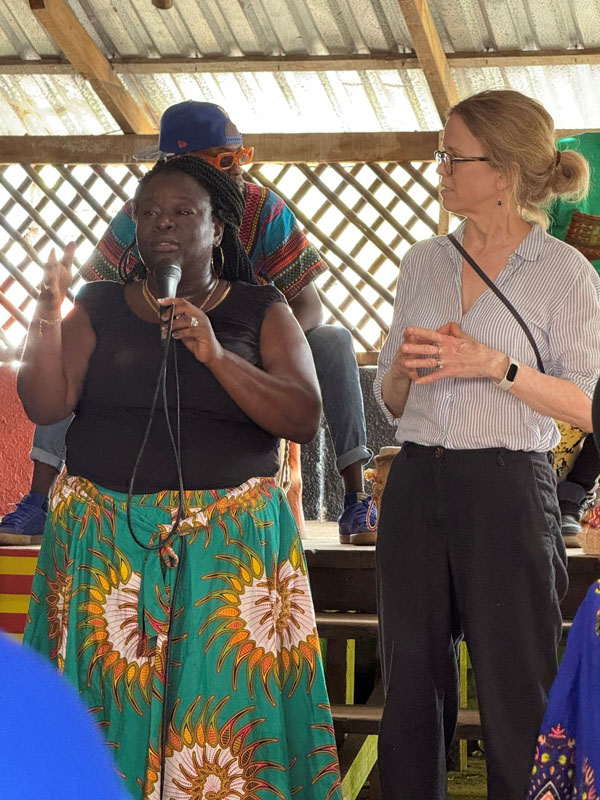
Friday evening was spent in and around the pool at the Gran Hotel Paris as we reflected on the week and on Honduras trips past. The kids had a great time in the pool, and some of us grown-ups joined in as well.
Some of what went through our minds as a group during our trip and on that last evening was thinking about what it is that Hondurans lose when they leave for other countries. The very close-knit community we witnessed, the deep care for each other, the amount of time that is spent outdoors and with neighbors and family. The ability to go out and get a soccer game going in no time with everyone joining in. And what do they escape when they go to other countries? Abject poverty, and with the poverty comes little possibility for education or improvement of their situation. Healthcare is prohibitively expensive when serious things happen. The reality is, in order to survive, every family needs at least one person outside the country to send back remittances and help. This system is a huge sacrifice both for those who leave and those who stay.
On Saturday, Cito, Keyla and the four children accompanied us back to San Pedro Sula to the airport, and we said our tearful goodbyes.
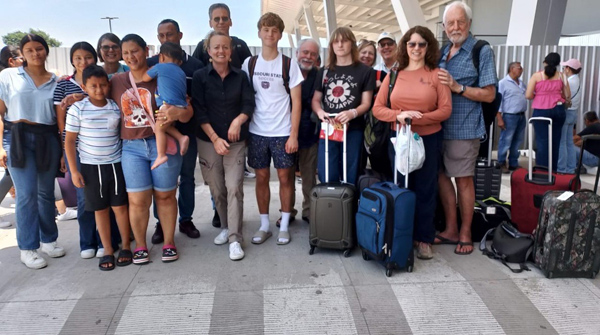
Our 2025 trip was delayed by 2 years due to a pandemic, two hurricanes, Cito’s Hepatitis C and then an accident that took a lot out of him. It had been over five years that we had last been to Honduras. Five years is too long. We hope to be back for our next UUCC service trip over Spring Break 2028. And we hope you consider joining us in 2028!
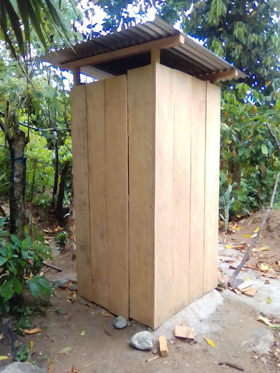 |
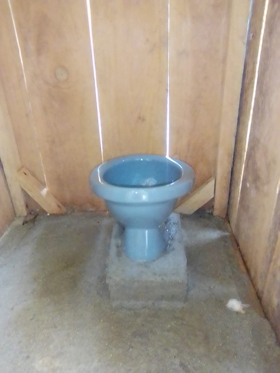 |
| Outside view of a finished latrine | Inside view of a finished latrine |
